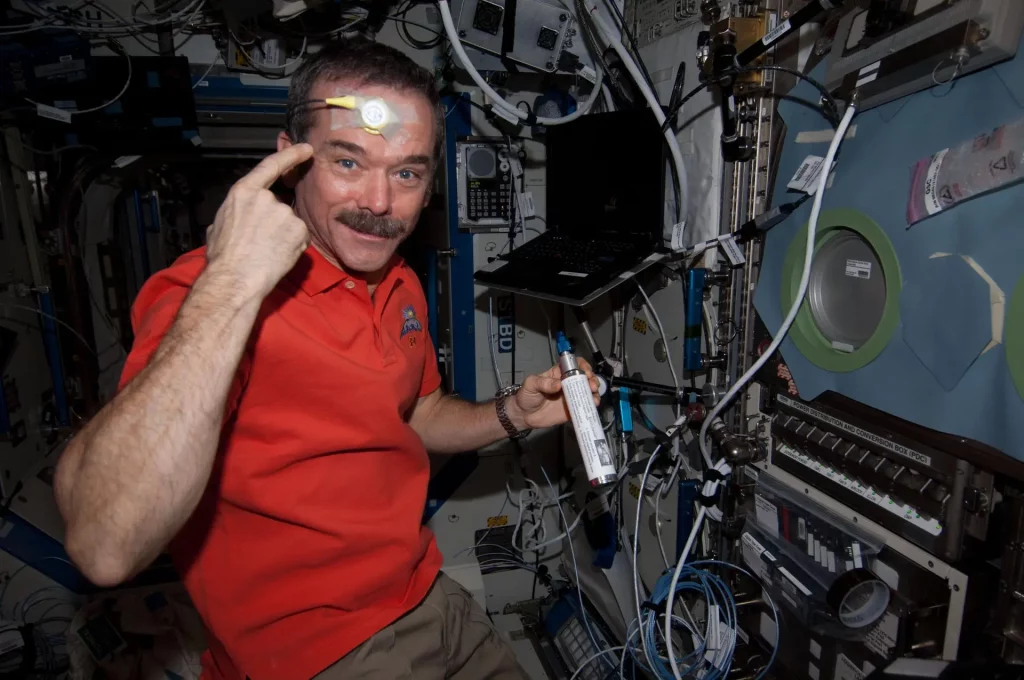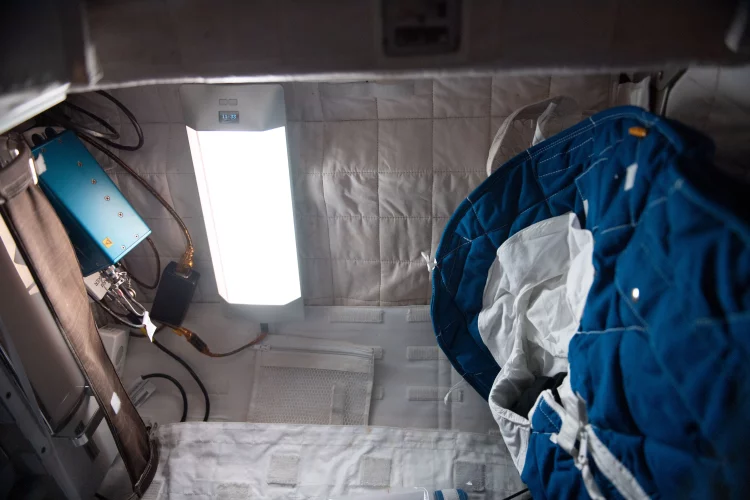Introduction
As humanity ventures further into the cosmos, the mental well-being of astronauts becomes increasingly vital. Space missions, especially those extending beyond Earth’s orbit, present unique psychological challenges that must be addressed to ensure the success and safety of space missions. The International Space Station (ISS) provides a critical platform for understanding and managing mental health in space. This article delves into the importance of mental health for astronauts, the challenges they face, and the ongoing research and strategies designed to support their psychological well-being during space missions.
The Importance of Mental Health in Space
Mental health is crucial for astronauts as they undertake long-duration missions in the isolated and confined environment of space. The psychological challenges of space travel include:
- Isolation and Confinement: Astronauts spend extended periods in a confined space with limited social interaction, which can lead to feelings of isolation and loneliness. The lack of privacy and the small living quarters can contribute to stress and affect mental well-being.
- Stress and Workload: Space missions involve intense workloads, high-stress environments, and rigorous schedules. The pressure to perform complex tasks, meet mission objectives, and manage technical issues can impact an astronaut’s mental health.
- Separation from Family: Extended time away from family and loved ones can lead to feelings of homesickness and emotional distress. The lack of direct communication with home can exacerbate these feelings.
- Health Risks: Space travel poses various health risks, including potential effects on cognitive function and emotional stability. The absence of gravity, radiation exposure, and other environmental factors can affect an astronaut’s mental and physical health.
Addressing these challenges is essential for ensuring astronauts’ well-being and mission success. NASA and international space agencies recognize the importance of mental health and have implemented various strategies and research initiatives to support astronauts during their missions.
Challenges to Mental Health in Space
1. Psychological Stressors
Psychological stressors in space can arise from various sources:
- Mission Demands: Astronauts face demanding schedules and high expectations, which can lead to stress. The need to balance scientific research, maintenance tasks, and emergency preparedness can be overwhelming.
- Confined Spaces: The limited space on the ISS means that astronauts have little room for personal activities or relaxation. The confined environment can lead to feelings of claustrophobia and stress.
- Team Dynamics: Working closely with a small team for extended periods requires strong interpersonal skills and effective communication. Conflicts or misunderstandings among crew members can impact mental health and team cohesion.
2. Sleep Disorders
Sleep disturbances are a common issue for astronauts due to the absence of a regular day-night cycle in space. The constant artificial lighting and altered sleep patterns can lead to:
- Insomnia: Difficulty falling asleep or staying asleep can result from changes in circadian rhythms and the lack of natural light cues.
- Sleep Deprivation: Prolonged sleep deprivation can affect cognitive function, mood, and overall mental health. Astronauts may experience fatigue and decreased performance.
3. Social and Emotional Well-Being
Maintaining social and emotional well-being is crucial for astronauts:
- Homesickness: Extended separation from family and friends can lead to feelings of homesickness and emotional distress. The limited opportunities for social interaction with loved ones can exacerbate these feelings.
- Support Systems: Astronauts rely on support systems from mission control and their crewmates. A lack of effective support or communication breakdowns can impact mental well-being.
4. Cognitive Performance
Cognitive performance can be affected by the psychological and physiological stressors of space travel:
- Concentration and Decision-Making: High levels of stress and fatigue can impair concentration and decision-making abilities. Astronauts must manage complex tasks and respond to emergencies, making cognitive performance critical.
- Emotional Regulation: Managing emotions in a high-stress environment is essential for maintaining mental health. Astronauts must develop strategies for coping with stress and regulating their emotions.
Strategies for Supporting Mental Well-Being in Space
1. Psychological Support and Counseling
Providing psychological support and counseling is a key component of maintaining mental well-being:
- Pre-Mission Training: Astronauts undergo psychological training before their missions to prepare for the mental challenges of space travel. This training includes strategies for managing stress, resolving conflicts, and maintaining emotional resilience.
- On-Mission Counseling: Access to psychological support during missions is essential. Astronauts can communicate with psychologists and counselors through secure channels to address mental health concerns and receive guidance.
2. Environmental Modifications
Modifying the space environment to enhance mental well-being involves:
- Living Quarters Design: The design of living quarters is optimized to provide a comfortable and functional environment. Personal space, privacy, and relaxation areas are considered to reduce stress and improve well-being.
- Lighting Control: Implementing adjustable lighting systems helps simulate natural day-night cycles, which can improve sleep quality and regulate circadian rhythms.
3. Social Support and Communication
Maintaining social connections and communication is crucial for emotional support:
- Communication with Loved Ones: Astronauts have opportunities to communicate with family and friends through video calls and messages. Maintaining these connections helps alleviate feelings of homesickness.
- Team Building Activities: Regular team-building activities and social interactions among crew members foster strong relationships and improve team cohesion. Effective communication and mutual support are essential for a positive work environment.
4. Monitoring and Assessment
Regular monitoring and assessment of mental health are vital for identifying and addressing issues:
- Psychological Assessments: Periodic psychological assessments are conducted to evaluate astronauts’ mental health and well-being. These assessments help identify potential concerns and provide timely interventions.
- Behavioral Observation: Crew behavior is monitored to detect signs of stress or emotional distress. Early detection allows for prompt support and intervention.
Research and Innovations in Mental Health
1. Behavioral Health Research
Ongoing research focuses on understanding the psychological effects of space travel and developing strategies to support mental health:
- Long-Duration Mission Studies: Research on long-duration missions, such as those conducted on the ISS, provides insights into the psychological challenges of extended space travel. Studies examine the impact of isolation, confinement, and stress on mental health.
- Coping Strategies: Research explores effective coping strategies for managing stress and maintaining emotional resilience. This includes techniques for relaxation, mindfulness, and emotional regulation.

2. Technology and Tools
Advancements in technology and tools contribute to supporting mental well-being:
- Virtual Reality (VR): VR technology is used to create immersive environments that can reduce stress and provide relaxation. Astronauts can use VR to experience simulated natural environments and engage in stress-relief activities.
- Telemedicine: Telemedicine allows astronauts to receive remote psychological support and counseling. This technology provides access to mental health professionals and resources during space missions.
3. Collaboration and International Efforts
Collaboration among international space agencies enhances mental health research and support:
- International Space Station (ISS) Collaborations: The ISS serves as a platform for international collaboration in mental health research. Space agencies from various countries work together to address the psychological challenges of space travel.
- Shared Knowledge and Best Practices: Space agencies share knowledge and best practices for supporting mental health. Collaborative efforts help develop effective strategies and interventions for astronauts.
Impact on Future Space Missions
As space exploration continues to advance, addressing mental well-being will remain a critical focus:
- Mars and Deep Space Missions: Future missions to Mars and deep space will present new psychological challenges due to the extended duration and distance from Earth. Research and strategies developed for the ISS will inform preparations for these missions.
- Crew Selection and Training: Selection and training of astronauts will increasingly emphasize psychological resilience and mental health preparedness. Candidates will undergo comprehensive evaluations and training to ensure they are equipped to handle the challenges of space travel.
Conclusion
The mental well-being of astronauts is a fundamental aspect of space exploration and mission success. Addressing the psychological challenges of space travel requires a multifaceted approach, including psychological support, environmental modifications, social support, and ongoing research.
NASA and international space agencies recognize the importance of supporting astronauts’ mental health and are committed to developing effective strategies and innovations. As humanity ventures further into space, ensuring the psychological resilience and well-being of astronauts will be crucial for the success of future missions.
The success of current space missions and the advancements in mental health research will pave the way for safe and successful exploration of the cosmos. By prioritizing mental well-being, we can ensure that astronauts are prepared to face the challenges of space travel and continue to make groundbreaking discoveries in the vast expanse of space.
Through ongoing research, technological innovations, and collaborative efforts, we are building a foundation for future space missions that prioritize the health and well-being of those who venture into the unknown. The commitment to supporting mental health in space reflects our dedication to exploring the universe while safeguarding the well-being of those who make this exploration possible.











































Discussion about this post